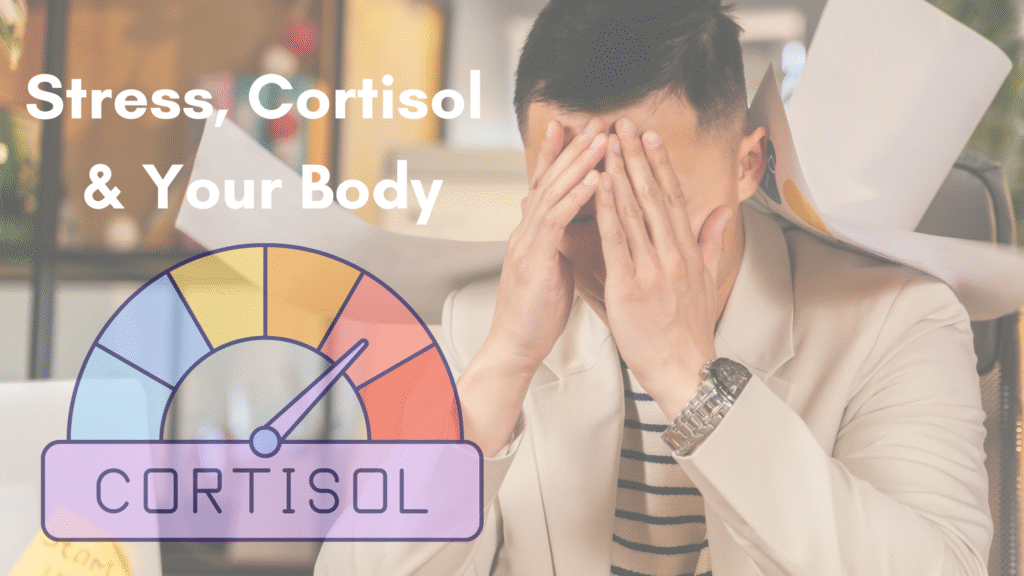
Stress, Cortisol & Your Body
We all know what stress feels like, the racing heart, the tight chest, the mind that just won’t switch off. But what’s actually happening inside your body when you’re stressed? And why does it matter for your long-term health?
The key player here is cortisol, your body’s primary stress hormone. Cortisol isn’t “bad”, in fact, in the right amounts, it’s essential. It helps us wake up in the morning, gives us energy, and even reduces inflammation when needed. It’s also part of our survival response: when you sense danger, cortisol rises to sharpen your focus and prepare your body for action.
The problem comes when stress isn’t temporary. In today’s world, our nervous systems are often in a near-constant state of alert, deadlines, family demands, phones buzzing 24/7. This means cortisol is being released again and again, without enough time for your body to come back down and reset.
Over time, chronically high cortisol can cause:
- Sleep problems and fatigue
- Increased anxiety or low mood
- Digestive issues and IBS-type symptoms
- Tension and pain in the muscles and joints
- Immune suppression, leaving you more vulnerable to illness
- Higher risk of inflammation and even autoimmune conditions
Your body is designed for balance, not long-term survival mode. That’s why supporting your nervous system and managing stress isn’t just “self-care”, it’s essential healthcare.
So what can you do to bring cortisol back into balance?
- Prioritise sleep: Consistent rest is one of the most powerful regulators of cortisol.
- Move your body (but not to excess): Gentle movement like walking, yoga or strength training helps reduce stress without spiking cortisol further.
- Nourish yourself: An anti-inflammatory diet supports both your nervous system and immune system.
- Breathwork & mindfulness: Simple practices signal to your body that you’re safe, lowering stress hormones.
- Connection & boundaries: Healthy relationships and saying “no” where needed are both vital for nervous system safety.
- Holistic care: Chiropractic, acupuncture, massage, and therapy can all help regulate the body and release stored tension.
The more consistently you weave these practices into daily life, the more resilient your body becomes. Stress is inevitable, but being stuck in survival mode doesn’t have to be.
If you’ve been feeling the effects of stress and want support in calming your nervous system, I’d love to help.
👉 Book your appointment today and start your journey back to balance.